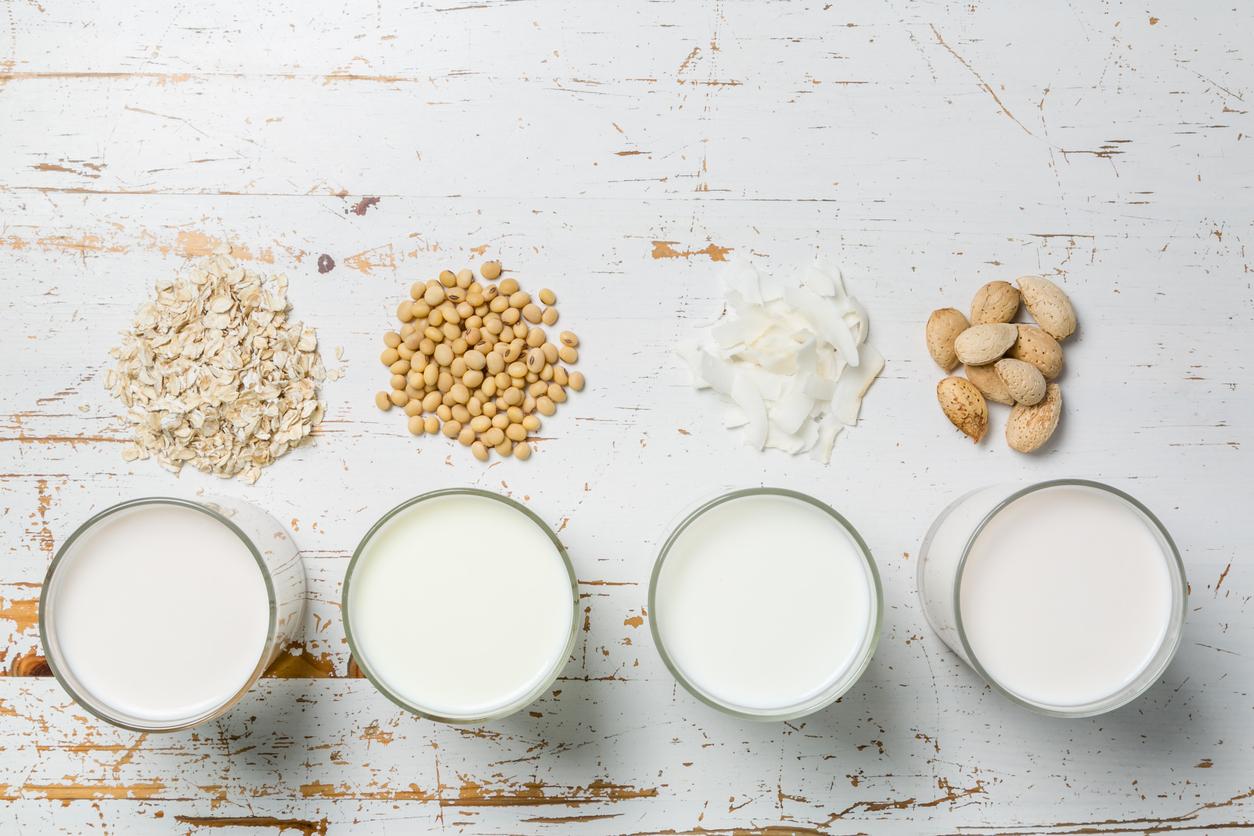- Symptoms: what are the signs of listeriosis?
- Incubation: what is the incubation time for Listeria?
- Pregnancy: what are the risks of listeriosis in pregnant women?
- Diagnosis: how is listeriosis diagnosed?
- Pregnancy: what are the risks of listeriosis in pregnant women?
- Food: what foods to avoid during pregnancy?
- Prevention: how to protect yourself and avoid listeriosis?
The product recall concerns Motte d’Antan with sea salt from Guérande 250 g of the Le Gall branda butter marketed from February 17 to February 27, 2023in supermarkets Auchan, Carrefour, Intermarché, Leclerc and Samada (Monoprix) from all over France.
The reason ? The presence in the butter ofisteria monocytogenes (the causative agent of listeriosis).
The batches in question have the barcode 3252920011797 and batch number 037. Their date of minimum durability is April 27, 2023.
Another butter is being recalled. It’s about lump butter with salt crystals (250g)a product of the brand Ker Argoet. It was sold in stores Grand Frais, Fresh and Mon Marché between February 21 and March 15, 2023. The barcode on the packaging 3701002403598 and the expiry date mentioned is April 17, 2023.
What to do if you bought contaminated butter?
- stop consuming
- Return the product to the point of sale
- Destroy the product
What to do if you have consumed this butter? The website consumption reminder recommended : “People who have consumed this product and who have fever, isolated or accompanied by headaches, and body aches, are invited to consult their doctor by notifying him of this consumption”.
Severe forms with neurological complications and maternal or fetal damage in pregnant women can also sometimes occur. Pregnant women as well as immunocompromised people and the elderly should be particularly alert to these symptoms. Listeriosis is a disease that can be serious and has an incubation period of up to eight weeks.
#ProductRecall
Motte d’Antan with Guérande sea salt 250G – Le GallRisks: Listeria monocytogenes (causative agent of listeriosis)
Reason: Detection of Listeria Monocytogenes.https://t.co/SDovL6ssurpic.twitter.com/DF2FISA29h
— Consum Reminder (@Consum Reminder) March 21, 2023
Food products are regularly recalled due to a suspicion of infection by the Listeria bacterium. Recently, they had touched Kinder chocolates and Buitoni pizza.
To note. In France, listeriosis remains a rare disease since only 5 to 6 cases are recorded per million inhabitants per year. In 2015, nearly 350 cases of listeriosis were recorded in mainland France.
Symptoms: what are the signs of listeriosis?
In a healthy person, bacterial infection with Listeria monocytogenes generally goes unnoticed since the pathogen is quickly destroyed by the immune system: there are therefore no symptoms.
On the other hand, in an elderly and/or immunocompromised person (i.e.: suffering from a chronic disease such as diabetes, cirrhosis or obesity, or suffering from cancer, or under immunosuppressive treatment) , the bacterium multiplies in the bloodstream and we can observe:
- Respiratory distress: irregular and noisy breathing, accelerated heart rate, severe headaches, bluish lips and extremities (fingers, toes), discomfort…
- Neurological symptoms reflecting meningoencephalitis: behavioral disorders, photophobia (significant discomfort with light), stiff neck…
- Septic shock: confusion, agitation, high fever (above 38°C), rash…
Incubation: what is the incubation time for Listeria?
THE incubation time bacteria Listeria monocytogenes (that is to say: the time between contamination and the appearance of the first symptoms of the disease) is quite variable: it is generally between a few days and two months (7-8 weeks).
It should be noted that, in the most severe cases (sepsis and neurological forms), the first symptoms of listeriosis can appear very quickly, within a few days.
Pregnancy: what are the risks of listeriosis in pregnant women?
During pregnancy, bacterial infection Listeria monocytogenes can have serious consequences on the health and development of the unborn child. “The bacterium crosses the placental barrier and can be responsible for in utero death or spontaneous abortion (miscarriage)” says Dr. Bastid.
Although the disease is generally of no consequence for the mother, the child may be born prematurely and present with a severe infection at birth combining sepsis, pulmonary infection, neurological neurological involvement and/or skin involvement.
Doctor’s advice: “in a pregnant woman, an unexplained fever (above 38°C) must absolutely be the subject of a medical consultation because it is a sign that may suggest listeriosis” recommends Dr. Bastid.
Diagnosis: how is listeriosis diagnosed?
The diagnosis of listeriosis consists of a blood test (serology) then a blood culture: “the blood is “cultured” in the laboratory to show the presence of the bacteria“ develops the gastroenterologist. The disease can also be confirmed after microbiological analysis of the placenta, cerebrospinal fluid, ascites fluid, joint puncture or perinatal samples.
To note. In France, listeriosis has been a notifiable disease since 1998: this means that the doctor or the medical analysis laboratory must inform the health authorities (Regional Health Agency) when he detects a case of listeriosis.
Treatment: how is listeriosis treated?
Good news: listeriosis is not an antibiotic resistant bacterium. “The treatment of the disease is based on the administration of antibiotics (ampicillin and / or gentamicin)“ explains the gastroenterologist.
Unsurprisingly, the treatment of infection with Listeria monocytogenes is all the more effective when administered early – including to pregnant women, to limit the impact on the foetus.
Food: what foods to avoid during pregnancy?
The best treatment for listeriosis is prevention. Fragile people (elderly or immunocompromised) as well as pregnant women should therefore avoid raw foods – “be careful, the bacterium Listeria monocytogenes can be present in plant foods as in animal foods“says Dr. Bastid. Here is the list of foods to avoid:
- Delicatessen in jelly,
- Rillettes and pâtés,
- Foie gras,
- Raw milk cheeses: Pont l’Évêque, maroilles, camembert…
- Soft cheeses: Brie, Coulommiers, Munster…
- Smoked fish: salmon, trout…
- Raw fish: sushi, sashimi…
- surimi,
- Tarama,
- Raw meats: tartars, raw hams…
- Raw shellfish: oysters…
- Raw sprouted seeds.
Attention ! “The Listeria monocytogenes bacterium does not modify the taste of food; it is therefore not possible to differentiate a contaminated food from an uncontaminated food by taste or smell” notes Dr. Bastid.
To note. The bacterium Listeria monocytogenes is destroyed after cooking for 30 minutes at 60°C.
Prevention: how to protect yourself and avoid listeriosis?
To prevent listeriosis, some good reflexes (inspired by common sense!) are essential, especially in the kitchen:
- Wash fruits and vegetables well before consumption,
- Regularly clean your refrigerator with soapy water, ideally once a month,
- Regularly check the temperature of the refrigerator: “it must be around 4°C in order to limit the proliferation of bacteria, including Listeria monocytogenes” recommends Dr. Bastid,
- Respect the use-by dates (DLC) / food expiry dates,
- Wash your hands regularly and thoroughly clean kitchen utensils – knives…
- Carefully reheat leftover food and cooked meals before consumption;
Sources:
- DGS press release, January 20, 2023.
- Pastor Institute
- Ministry of Health
- Interview Dr. Christophe Bastid, gastroenterologist at the Clinique Bouchard in Marseille (ELSAN group).
















